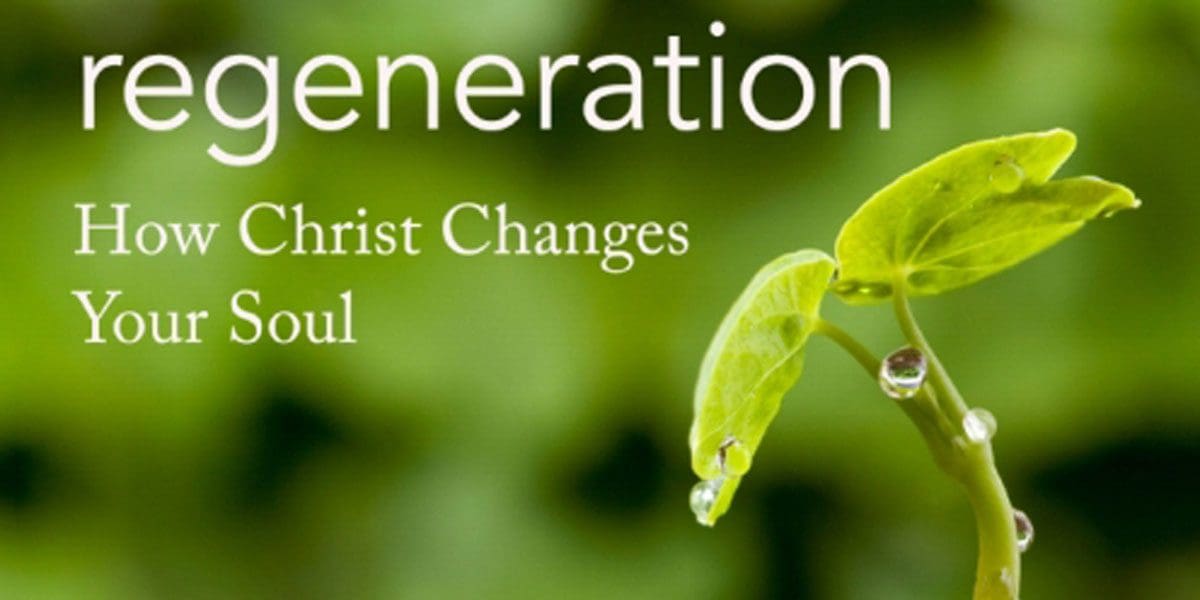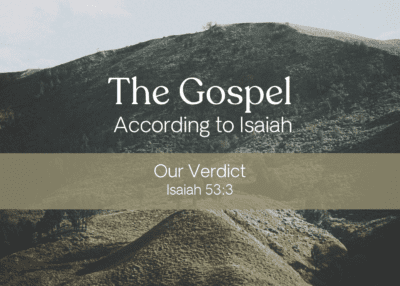To the Jews who had believed him, Jesus said, “If you hold to my teaching, you are really my disciples. Then you will know the truth, and the truth will set you free.”
They answered him, “We are Abraham’s descendants and have never been slaves of anyone. How can you say that we shall be set free?” (John 8:31-33 NIV)
Can you feel the sensitivity here? This was a sympathetic audience: “Jews who had believed him.” That means they had accepted what he just said about himself. They were a generally supportive audience. They were not yet committed to Christ and Christ was not committed to them (cf John 2:23-24).
The central pillar of religion
Jesus invites them to move beyond a general acceptance of what he is saying to a life of committed obedience: “If you hold to my teaching you are really my disciples.” Then our Lord hits a raw nerve: “You will know the truth and the truth will set you free.” That gets an immediate reaction. “We are Abraham’s descendants and have never been slaves of anyone. How can you say that we shall be set free?” (v33).
If you follow the chapter, you will see the spiral down. What Jesus said here made the people who had believed him absolutely furious. Finally John says, “At this, they picked up stones to stone him” (v59).
This is a sensitive issue. It provokes a reaction. As soon as Jesus said that these folks needed to be set free, they tuned him out. Their own freedom was the central pillar of their religion. And when Jesus says, “There is a kind of freedom that only I can give you, and without me you do not have it,” they don’t like it. And neither do we.
We want to feel that we are in control of our lives, and especially that we are in control of the things that matter most. That includes our salvation. You hear this all the time on the talk shows: “You can be anything you want to be.” That’s the spirit of our culture. But there are some things you cannot be, that only Jesus can free you to be. So, Jesus is telling us that this simply is not true.
Christ Tells Us That We Are Slaves
Jesus replied, “I tell you the truth, everyone who sins is a slave to sin” (John 8:34)
“Anyone who sins.” That’s all of us. By nature “All of us are slaves to sin.”
Our Lord is not saying that sinning makes you a slave. He is saying that your slavery makes you sin. Our sinning is the evidence of our slavery and it is universal.
The principle is not “If you do the wrong things you will get trapped by them.” It is “because you are trapped, you will do the wrong things.” We are not sinners because we choose to sin. We choose to sin because we are sinners.
We sin because we want to. The reason we want to sin is that, by nature, sin resides in our hearts. Sin is not just near us, it is in us. You can see why this is such a sensitive subject. It goes to the heart of who we are and what it is that we need to be saved from.
We would all like to think that sin is a dark force somewhere outside of us, and that we have the ability to say yes or no to it. We understand that we are fallen beings, and so sometimes we will get it wrong, but we want to believe that when we come to our senses we have the ability to get it right.
What the Bible teaches about our sin nature
But Jesus says, “Now wait a minute! Everyone who sins is a slave to sin.” This is what the apostles teach in the New Testament:
When tempted, no one should say, “God is tempting me.” For God cannot be tempted by evil, nor does he tempt anyone; but each one is tempted when, by his own evil desire, he is dragged away and enticed. (James 1:13-14)
What is it that causes us to be tempted? Is it something outside of us? No. It is inside us. Sin has a deeper root in us than most people want to admit.
They promise them freedom, while they themselves are slaves of depravity–for a man is a slave to whatever has mastered him. (2 Peter 2:19)
The sinful mind is hostile to God. It does not submit to God’s law, nor can it do so. (Rom. 8:7)
The natural condition of the human mind is that we do not follow God’s law, and that is because we cannot follow it. This is why John says that the new birth is not the result of a human decision:
To all who received him, to those who believed in his name, he gave the right to become children of God– children born not of natural descent, nor of human decision… but born of God. (John 1:12-13)
God’s children are those who have received Christ and believed in his name. But how did that happen? The children of God are born… not of natural decent (not defined by race), not of human decision (not by our choice), but born of God (John 3:13).
By nature our minds do not see the glory of Christ. By nature our hearts are resistant to the love of Christ. If God left you to your own choice, you would never choose Christ. This raises the question of the will. In what sense is the human will free?
What Kind of Freedom Do We Have?
We make real choices and we make them freely
We are people, not puppets. We make choices, and the choices we make shape the contours and direction of our lives. We can make good choices. We can make better choices. We have the ability to make changes and improvements in our lives.
We are responsible for the choices that we make
We cannot blame other people for our choices. You can’t blame God or the devil. You can’t blame your wife, your husband, or your friend for your choices. Adam tried that: “The woman gave me the fruit.” That won’t work, Adam. You ate it. That was your choice and you are responsible for it.
God has created the world in such a way that we have real choices and real responsibility. The big question lies deeper: Why do we choose what we choose? Why do we do what we do?
We choose according to the prevailing desires of our heart
“Free will” is a slippery term. The Bible never uses it, and people mean different things by it. If you want to talk about “free will,” always remember that the freedom we have is the freedom to follow the deepest desires of our own hearts.
There is a certain liberty that is the inalienable possession of the free agent, namely, the liberty to choose as he pleases, in full accord with the prevailing dispositions and tendencies of his soul. [1]
We are always free to choose according to the prevailing desires of our hearts. To put it more simply, the freedom you have is the freedom to do what you most want to do.
Some years ago when the space program was at its height, Walter Chantry crafted an illustration that I have found helpful. He points out that when a rocket is launched, there is a mass of technology involved in guiding it to its destination. You have wires and electronic circuits, but all of them are connected to mission control:
If mission control is wired for evil, the will cannot make the rockets of life travel on the path of righteousness… Will may be the button which launches the spacecraft. But the launching button does not determine the direction.[2]
What then determines the direction? Your heart—which functions as your mission control. He concludes: “You are free to be yourself. The will cannot transform you into someone else.”
I was talking to someone recently who said to me, “I reinvent myself every five years.” How far can you go with that? You can change jobs, you can change where you live, or you can change your appearance—the color of your hair, your eyes, lose weight and get a new wardrobe—but you cannot change yourself.
Your mind is still your mind, your heart is still your heart, and your will is still your will. Can the leopard change its spots? No, only God can make you a new creation. Only God can save you.
Christ Tells Us That He Can Make Us Free
If the Son sets you free, you will be free indeed. (John 8:36)
Slaves cannot set themselves free. If they could, they wouldn’t really be slaves, would they? Christ says, “I can set you free.”
Christ does not drag you, kicking and screaming, against your will to follow him. What does he do? God shines his light into your mind and pours his love into your heart. What happens? The rockets of the will start moving in a different direction.
When God works in us, the will is changed under the sweet influence of the Spirit of God… It desires and acts, not of compulsion, but of its own desire and spontaneous inclination. [3]
I follow Christ because I want to. The will chooses according to the prevailing desires of the heart, so when by God’s grace the prevailing desires of the heart change, the will chooses a new direction!
Christ sets the will free in regeneration so that, gladly and freely, you choose to follow Christ! Paul says, “We make it our aim to please him” (2 Cor. 5:9). Do you see how wonderful that is? It is the evidence of this miracle in your life.
The kind of freedom Christ promises
Does this mean that we always choose what is good after we have been regenerated and become Christians? No. The freedom Christ promises in this life is not freedom from the struggle with sin, but freedom from slavery to sin.
You will be tempted in many ways, and often you will fail. The prevailing disposition of your soul is not the only disposition of your soul. There may be times when you give way to greed. But if you have been born again, the great desire of your life is not to make a pile of money.
There may be times when you fall into pride or lust or lies, but at the core of your being, you know that is not what you want. You want to honor Christ. You want to bring him glory. You want to walk in purity and to grow in holiness. You want that because you are a new creation in Christ.
When you are in Christ, the prevailing disposition of your soul is different. Sometimes we need to be reminded of that.
One day a lady came to C. H Spurgeon, plagued by doubts about her own salvation:
“My heart is often cold,” she said, “I don’t think I really love Christ.”
Spurgeon grabbed a piece of paper and wrote on it “I do not love Jesus Christ.” He handed it to the lady. “Sign that!” he said.
“Pastor,” she said, “I could never sign that.”
“Why not?”
“Because I love Christ!”
“Exactly,” he said, “because you have been born again.”
So be who you are! True freedom is when what God calls you to do and what you most want to do turn out to be the same thing. That is the freedom Christ gives. If you have this freedom you are free indeed!
What the Truths of Universal Slavery and…
…Freedom in Christ Mean For Your Life
As long as we believe in our ability to save ourselves, we will live under the illusion that being a Christian is basically about making some better choices: “Stop the bad stuff and do the good stuff.” We make light of sin when we live as though the power to make that change lies within us.
It makes sense of our struggles
The Bible is telling us that sin is a deeper problem. Sin has power, and its power lies deeply rooted in us. What we need is regeneration from the Spirit of God.
Augustine says it so clearly in his Confessions:
The enemy had a grip on my will and so made a chain for me to hold me a prisoner.[4]
Paul says the same thing about our natural condition. He’s talking about being “a prisoner to the law of sin at work within my members” (Rom. 7:23). Who will deliver me from this? How do you know he’s talking about the unregenerate? Because when you come to Jesus, he sets you free!
It brings hope in Jesus Christ
If the Son sets you free, you will be free indeed (John 8:36)
This is a marvelous promise. It’s more than forgiveness; it is a promise of power. The Great Physician—bringing healing to the soul, bringing a new light to the mind, new responsiveness to the heart, and new strength and direction to the will.
Christ says, “You will be free indeed!” Set free by his forgiveness from the past. Set free by his power for the present. Set free by his promise of full redemption for the future.
Regeneration puts you in an entirely new position. Sin is still your enemy, but it is no longer your master. The flesh is not what I am, it is what I am fighting against.
It glorifies God
A common assumption among Christians is that God is willing to save us, but that we must make the first move. Many Christians believe this. Perhaps you do. He will regenerate us and forgive us, but we make the first move. God responds to our initiative in repenting and believing. He saves us, but only when we want him to.
Here’s the problem: If I am saved and my friend is lost, the only difference between us is that I made the first move towards God and the other person did not. Ultimately, my salvation boils down to something I did. At the end of the day, it is a human work. I am better than him. That cannot be right, can it? Is that what the Bible teaches?
If, by nature, my mind is blind to the gospel, and my heart is hard to the Gospel, I will not and cannot make the first move towards God. The only way I could ever be saved is if he makes the first move towards me—opening my eyes, touching my heart, and changing the disposition of my soul.
That’s why the Reformers, who saw this truth in the Bible so clearly, said Sola gratia “by grace alone” and Soli deo gloria “to the glory of God alone.” Can you see how this would help you to find greater joy in Jesus Christ?
It gives confidence for the future
This truth was one of the most important issues in the great debates of the Reformation. A man called Erasmus wrote a book on free will and sent it to Luther. Luther wrote a reply four times longer, called “The Bondage of the Will.” He believed it was his most important work.
The issue at stake boils down to whether your salvation hangs on something that you do for God, or something that God does for you:
I frankly confess that, for myself, even if it could be, I should not want ‘free will’ to be given me, nor anything left in my own hands to enable me to endeavor after salvation;
Not merely because in face of so many dangers, and adversities and assaults of devils, I could not stand my ground and hold fast my free will (for one devil is stronger than all men, and on these terms no man could be saved);
But because, even were there no dangers, adversities or devils, I would still be forced to labor with no guarantee of success and to beat my fists in the air.
If I lived and worked to all eternity, my conscience would never reach comfortable certainty as to how much it must do to satisfy God. Whatever work I had done, there would still be a nagging doubt as to whether it pleased God, or whether he required something more. The experience of all who seek righteousness by works proves that; and I learned it well enough myself over a period of many years, to my own great hurt.
But now that God has taken my salvation out of the control of my own will, and put it under the control of his, and promised to save me, not according to my working or running but according to his own grace and mercy, I have the comfortable certainty that he is faithful and will not lie to me, and that he is also great and powerful, so that no devils or opposition can break him or pluck me from him. ‘No-one,’ he says, ‘shall pluck them out of my hand because my Father which gave them to me is greater than all (John 10:28-29).’[5]
[1] Peter Lewis, Rescue, God’s Promise to Save, citing Systematic Theology, Part 2, p. 248 by Louis Berkhof, (Fearn: Christian Focus Publishing, 1986), 33
[2] Peter Lewis, Rescue, God’s Promise to Save, citing Walter Chantry, (Fearn: Christian Focus Publishing, 1986), 34
[3] R. C. Sproul, Willing to Believe, (Grand Rapids: Baker Publishing, 1997), 94
[4] Cited in Cornelius Plantinga, Not The Way Its Supposed To Be, (Grand Rapids: Wm. B. Eerdmans Publishing, 1995), 146
[5] John Dillenberger, Martin Luther, Selections from his Writings, (New York: Random House Publishing, 1962), 199




